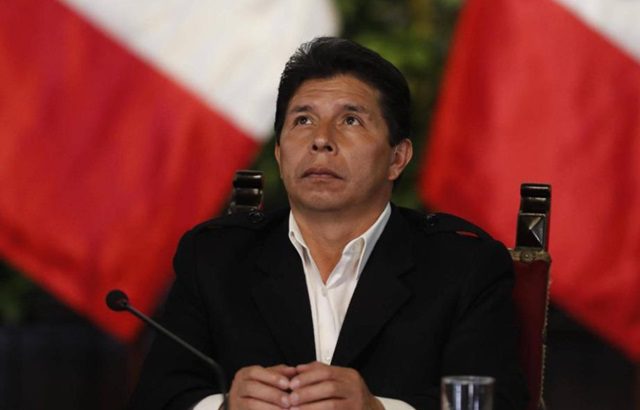BTN News: In a significant legal development, former Peruvian President Pedro Castillo is set to face trial for his alleged role in a failed coup attempt on December 7, 2022. This decision, made by the Peruvian Judiciary, represents a crucial step in the country’s ongoing political and legal turmoil. Castillo, who served as president from 2021 to 2022, was ousted after announcing an unconstitutional plan to dissolve Congress, intervene in the judiciary, and call for a constitutional assembly. The Supreme Court’s recent decision denies Castillo’s request to dismiss the charges, meaning he will stand trial along with several former ministers. The charges, which include rebellion and disturbing public peace, could result in a prison sentence of up to 34 years if he is found guilty.
Supreme Court Judge Orders Trial Despite Defense’s Request for Dismissal
In a ruling that cannot be appealed, Judge Juan Carlos Checkley of Peru’s Supreme Court rejected a motion by Castillo’s defense team to dismiss the case. This decision paves the way for an oral trial, which will also involve Castillo’s former Prime Ministers Aníbal Torres and Betssy Chávez, who face varying charges connected to the attempted coup. “The arguments from both the prosecution and the defense must be weighed during the trial phase,” Checkley declared, emphasizing that the courtroom is the proper venue for resolving such accusations.
Details of the Planned Trial and Possible Penalties
The trial will scrutinize a series of alleged offenses that took place during the turbulent political crisis of late 2022. Prosecutors have sought a 34-year prison term for Castillo, accusing him of rebellion, abuse of authority, and severe disturbance of public order. Meanwhile, Betssy Chávez, who was serving as Prime Minister at the time of the failed coup, is currently in preventive detention and faces a potential 25-year sentence. Aníbal Torres, another key figure in Castillo’s inner circle and his legal advisor, could receive 15 years in prison if found guilty.
High-Profile Figures and Officials Also Charged
The impending trial will not only focus on Castillo and his ministers but also on other significant political figures and state officials. Former Ministers Willy Huerta and Roberto Sánchez, who currently serves as a congressman, are among the accused, along with high-ranking officers of the Peruvian National Police (PNP), including Manuel Lozada, Jesús Venero, and Eder Infanzón. The broad scope of the trial highlights the profound impact of Castillo’s actions on Peru’s political landscape.
Evidence Evaluation Phase Underway Before Oral Trial
Before the trial can begin, Judge Checkley is currently overseeing the “control of evidence” phase. This stage involves evaluating all the evidence presented by the prosecution and determining the relevance of witnesses who may be called to testify. The judge will issue a formal indictment once this stage is completed, officially setting the trial date. Given the high-profile nature of the case and the positions held by the accused, the Special Criminal Chamber of the Supreme Court will handle the proceedings.
Political Crisis and Aftermath: Castillo’s Controversial Move to Dissolve Congress
Pedro Castillo’s downfall began on December 7, 2022, when he made a televised announcement declaring his intention to dissolve Peru’s Congress, take control of the judiciary, and convene a constitutional assembly. The move sparked immediate backlash, leading Congress to impeach him for “permanent moral incapacity” the same day. Castillo was arrested by the Peruvian National Police (PNP) shortly afterward and has been in custody ever since. In addition to the rebellion charges, he faces separate investigations related to alleged corruption during his presidency.
Legal and Political Implications for Peru’s Future
The decision to move forward with the trial of Pedro Castillo and his associates marks a turning point in Peru’s ongoing political crisis. The outcomes of this trial will have significant implications not only for the individuals involved but also for the country’s political stability and the rule of law. As the trial date approaches, the eyes of both national and international observers remain fixed on Peru’s judiciary, anticipating the potential consequences for the nation’s democratic processes.


